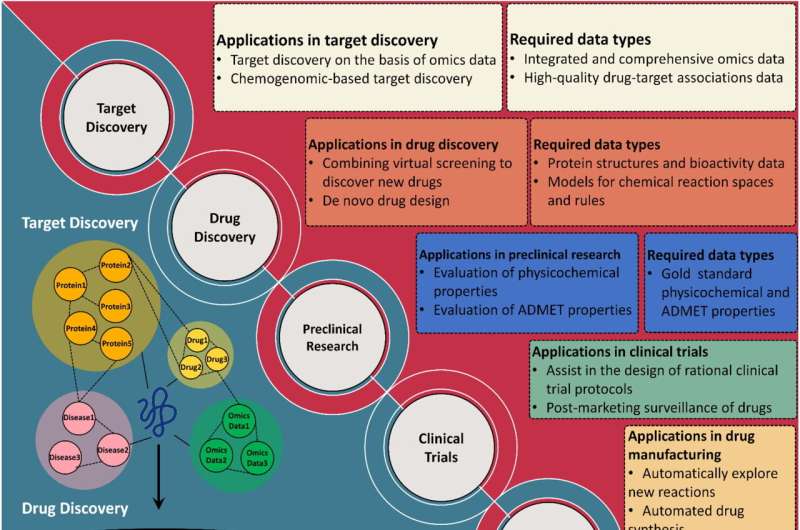
Scientists have long been challenged by the complex process of drug discovery and development, with investments that often go unrewarded. However, with the advancement of experimental technology and computer hardware, artificial intelligence (AI) has emerged as a leading tool in analyzing abundant and high-dimensional data.
In a new academic paper published in the journal Engineering titled “Artificial Intelligence in Pharmaceutical Sciences,” researchers detail the advantages of AI technology in all aspects of new drug research and development (R&D).
AI is capable of discovering new drugs more efficiently and at a lower cost. Through the explosive growth of biomedical data, AI has led to a revolution in drug R&D, from target discovery to preclinical research, automated drug synthesis, and influences on the pharmaceutical market. In the review, the authors provide a brief overview of common AI models in the field of drug discovery, then summarize and discuss in depth their specific applications in various stages of drug R&D.
The paper concludes that AI is advantageous in all aspects of new drug R&D. It can be used in the discovery of drug targets, the design and development of new drugs, preclinical research, clinical trial design, and post-market surveillance to assist in the design of safe and effective drugs.
AI greatly reduces the cycle time and cost of drug R&D. While some limitations still remain in the AI-based drug R&D process, the authors believe that AI is an indispensable technology in the drug R&D process. In the future, AI technologies will change the R&D paradigm of pharmaceutical sciences, providing personalized medicine to patients.
The authors of the paper propose further research to inject new energy into this field and keep the momentum going. The emergence of AI is gradually helping scientists unravel the mystery of large and complex biological systems, making it a game-changer in the drug R&D process. As technology continues to advance, the potential of AI in the pharmaceutical industry is limitless.
More information: Mingkun Lu et al, Artificial Intelligence in Pharmaceutical Sciences, Engineering (2023). DOI: 10.1016/j.eng.2023.01.014
Provided by Engineering

